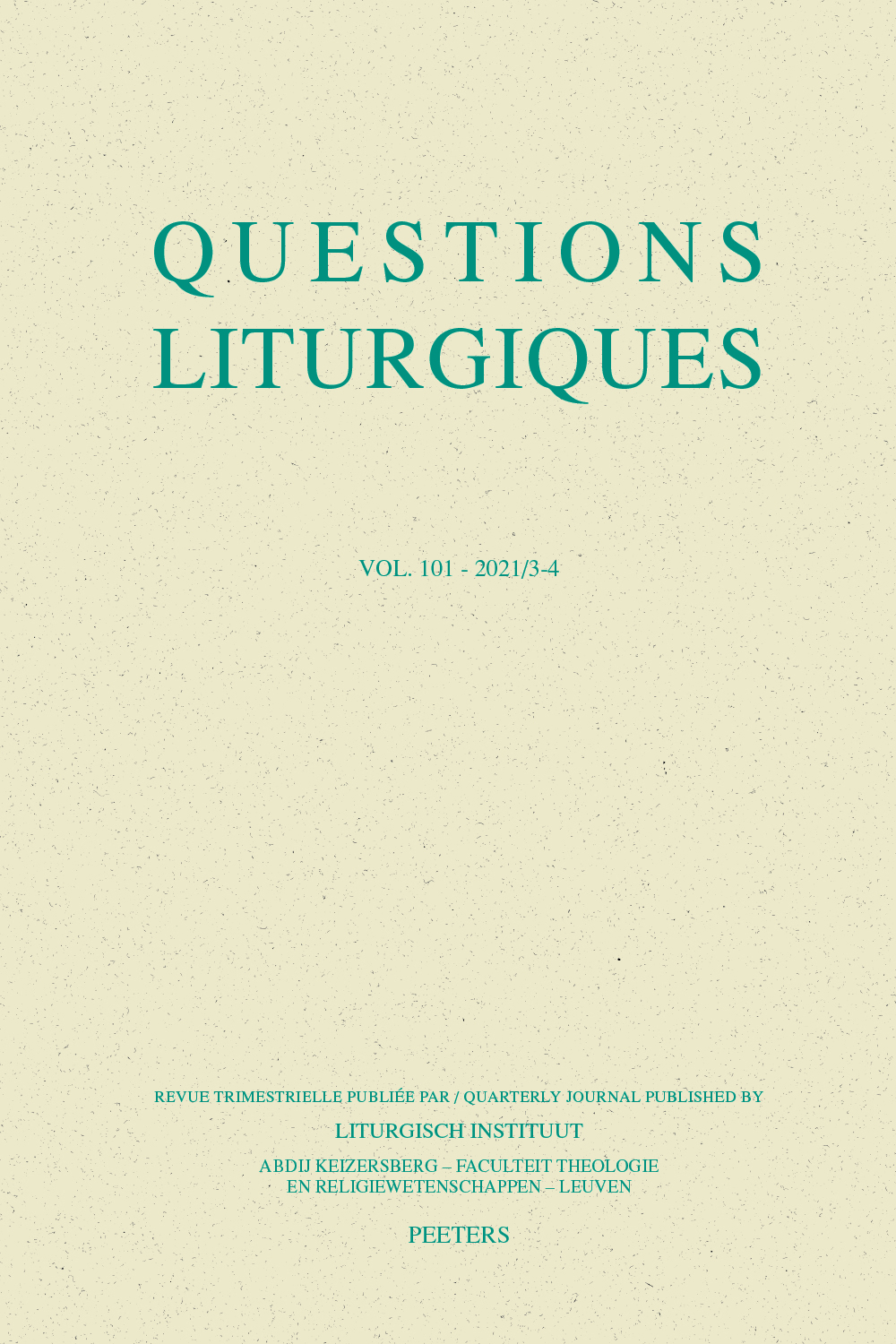next article in this issue  |

|
Document Details : Title: 'Incline the Ear of Your Heart' Subtitle: Aspects of Liturgical Silence Author(s): CARPENTER, Anne M. Journal: Questions Liturgiques/Studies in Liturgy Volume: 95 Issue: 3-4 Date: 2014 Pages: 159-182 DOI: 10.2143/QL.95.3.3075942 Abstract : In this essay, I explore the relationship between Benedictine concepts of liturgy and what Hans Urs von Balthasar calls the 'silence' of God. By examining the Rule of Benedict alongside Hans Urs von Balthasar’s modern retrievals of monastic ideals, I articulate features of a theology of silence that functions both as a hermeneutic for understanding the attitudes that the liturgy engenders, and for understanding the liturgy in itself. Four themes emerge in the interaction between Balthasar and the Benedictines: attentiveness or 'watching' for the Lord, reading the 'Book' of the Incarnate Word, obedience as a free expression of Christological obedience, and silence as an aspect of both Trinitarian and liturgical life. Each of the four qualities of liturgical existence helps to shape a vibrant understanding of the other. The monastic appropriation of silence helps to provide a theology of the liturgy that, while emphasizing the presence of mystery in the midst of the liturgy and the sacraments, also helps to challenge concepts of liturgy and liturgical life that attempt to transform the liturgy into a utility for formation alone or into a dogmatic theological text. Balthasar’s reflections on the silence of God emphasize how any silence in the liturgy or liturgical attitudes imitates the immense mystery of the Trinity. Understanding the liturgy is impossible without participating in its silences, a participation that at the same time transforms what it means for us to participate in liturgical life. Dans cet essai, j’explore la relation entre les concepts bénédictins de la liturgie et ce dont Hans Urs von Balthasar appelle le «silence» de Dieu. En examinant les retrouvailles modernes d’idéaux monastiques opérés par von Balthasar tout au long de la Règle bénédictine, je relève des traits d’une théologie du silence qui fonctionne à la fois comme une herméneutique pour comprendre les attitudes que la liturgie engendre, et pour comprendre la liturgie en elle-même. Quatre thèmes émergent dans l’interaction entre von Balthasar et les Bénédictins: attention ou ‘veille’ pour le Seigneur, lecture du ‘Livre’ du Verbe incarné, obéissance comme une expression libre de l’obéissance christologique, et silence comme un aspect à la fois de la vie trinitaire et liturgique. Chacune de ces quatre qualités de l’existence liturgique contribue à s’ouvrir à l’intelligence de l’autre. L’appropriation monastique du silence contribue à produire une théologie de la liturgie qui en accentuant la présence du mystère dans le milieu de la liturgie et des sacrements, aide ainsi à proclamer des concepts de liturgie et de vie liturgique qui tentent à transformer la liturgie en une utilité pour la formation seule ou à l’intérieur d’un texte dogmatique théologique. Les réflexions de von Balthasar sur le silence de Dieu comprennent combien chaque silence dans la liturgie ou dans des attitudes liturgiques imite l’immense mystère de la Trinité. Saisir la liturgie est impossible sans participer à ce silence, une participation qui en même temps transforme ce qu’elle signifie pour nous faire participer à la vie liturgique. |
|
